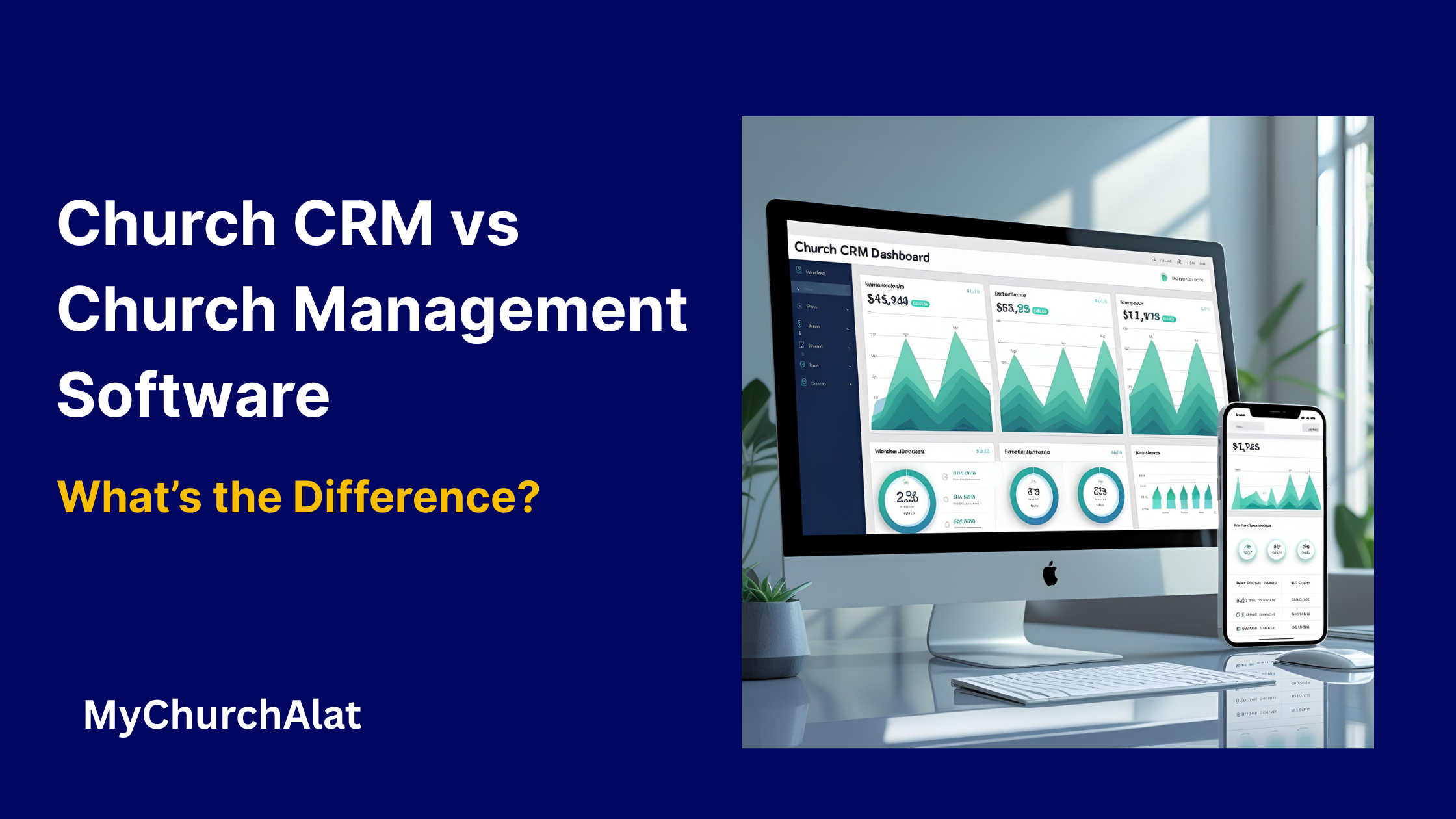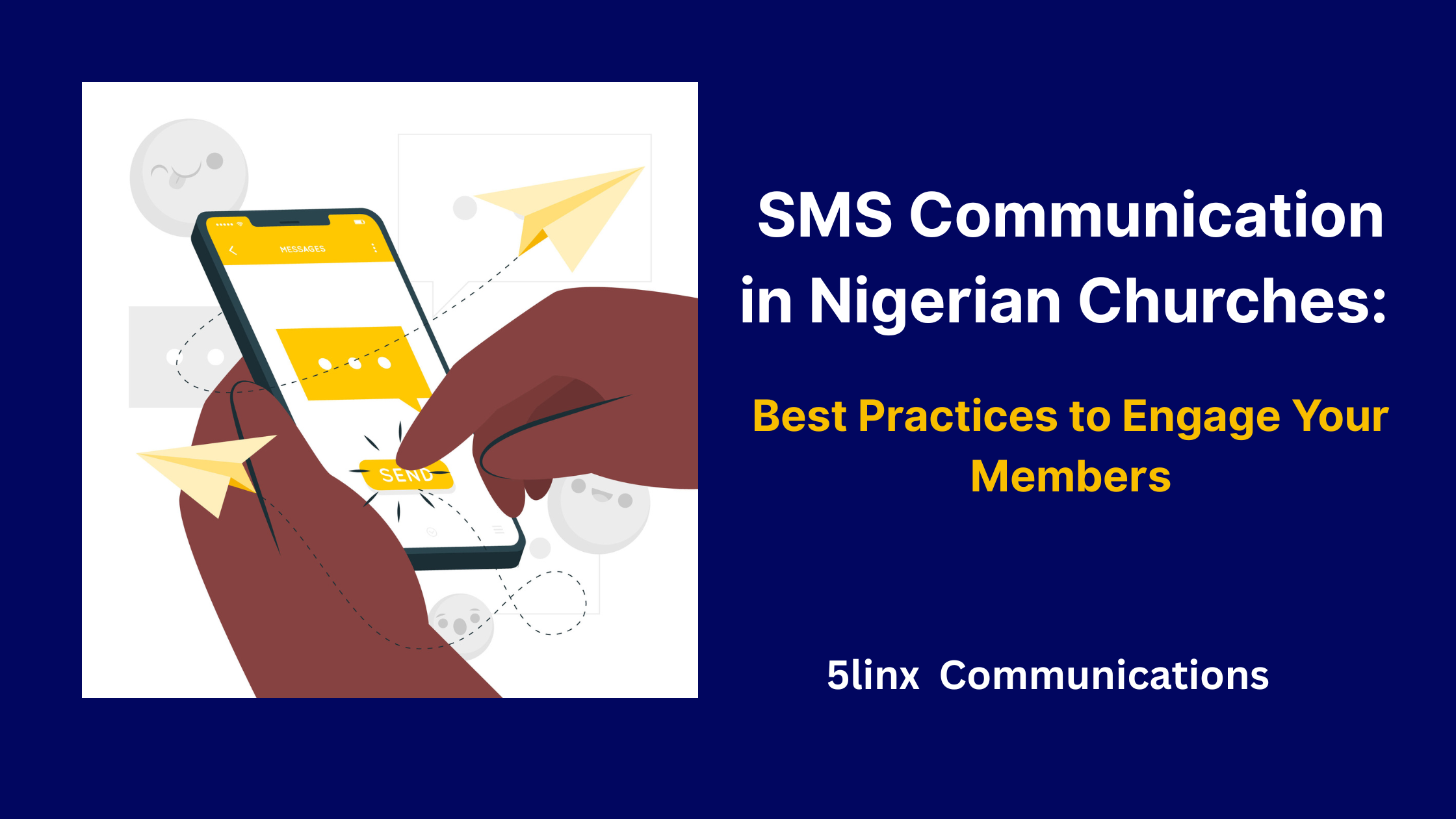Church CRM vs church management software is a question many church leaders ask during software adoption. While they may overlap in features, their core purposes and value differ. Understanding this distinction helps your ministry choose the right tool for outreach, discipleship, or operations.
This post explains how a focused church CRM (member engagement tool) differs from a full-fledged church management software (administrative powerhouse), and how both can play key roles in your church’s growth.
What Is Church CRM?
A church CRM is designed to help churches cultivate deeper, more personal relationships with members, visitors, and volunteers. The emphasis is on engagement, follow-up, and communication, often featuring:
- Automated member follow-ups (like our New Member SMS Template Pack)
- Multi-channel outreach: SMS, voice, email
- Custom tags and segmentation (e.g., “first-time guest,” “youth volunteer”)
- Dashboards to visualize connection patterns
A church CRM’s primary goal: help leaders, pastors, and volunteers interact meaningfully with every person in their church.
What Is Church Management Software?
Conversely, church management software focuses on administrative and operational tasks. This comprehensive system often includes:
- Membership databases with detailed histories
- Attendance tracking and reporting
- Volunteer scheduling
- Event and room management
- Financial tools: giving, tithes, invoicing
- Integrations with accounting systems
Fundamental Differences: Church CRM vs Church Management Software
| Feature Area | Church CRM | Church Management Software |
| Core Purpose | Relationship-building & outreach | Administration, logistics, finance |
| Communication Channels | SMS, voice, email, workflows | Often limited to email or static notifications |
| Workflow Focus | Engagement flows (automated follow-ups) | Attendance, volunteer shifts, resource planning |
| Financial/Giving Capabilities | Rarely present | Common and often robust |
| Ideal For | Small to mid-size churches focused on connection | Larger churches needing operational infrastructure |
| Typical User | Pastors, care teams, small staff | Administrators, finance teams, event coordinators |
When Do You Need Church CRM vs Church Management Software?
When to Choose a Church CRM
- Your primary goal is connecting and nurturing new visitors
- You want to personalize engagement with SMS, voice or email
- You don’t yet need financial or event management tools
- Ease of use is vital (ideally something volunteers can run)
When You Need Church Management Software
- You handle lot’s of administrative tasks: giving, attendance, rooms
- You manage large volunteer teams with shift scheduling
- You need financial tools: donation tracking, invoices, reporting
The Power of Combining Both: Engagement + Operations
Many churches get the most value by using a church CRM alongside their church management software:
- Start with Connection
Use CRM for personalized outreach – welcome messages via SMS, volunteer thank-you notes, prayer-care follow-ups. - Track Administratively
Record attendance, giving, and volunteer shifts in your management system. - Sync and Grow
Integrate both tools CRM triggers can launch an SMS follow-up when someone visits, and management software updates volunteer status.
This hybrid approach gives you the best of both worlds: deep relationship building and administrative efficiency.
Key Features to Look For in a Church CRM
- Multi-channel communication: SMS, voice, email
- Automated flows like welcome series and event reminders
- Tagging and segmentation to tailor messaging
- Analytics to track response rates and engagement
- Ease of use – mobile-friendly dashboard for volunteers
Explore a full feature list that includes these benefits in our in-depth church SMS platform Nigeria article.
Key Features to Look For in Church Management Software
- Membership tracking with rich member profiles
- Attendance logs and reports
- Volunteer management tools: scheduling, reminders
- Financial systems: donation processing, giving reports
- Event & facility booking with calendar features
Cost & Complexity
- Church CRM tools are often lightweight user-friendly and affordable
- Church management software can be complex and costly, with longer onboarding time
Evaluate your church’s budget, tech capacity, and human resources before selecting a solution.
Implementation Considerations
- CRM tools are usually quick to implement – deploy workflows in days
- Management systems require data migration, volunteer training, and financial setup
- Seek vendor support – a good CRM offers onboarding help; systems should offer tech support plans
Things to Consider when choosing between Church CRM vs Church Management Software
- Choose a Church CRM if your top priorities are connection, follow-up, personal outreach, and simplicity.
- Choose Church Management Software if operations, giving, attendance, and finances are at the forefront.
- Combine both to layer engagement on administrative strength – integration is key to harmony
Conclusion & Next Steps
Understanding church CRM vs church management software empowers your ministry to match tools to ministry needs. Connection without administration or vice versa can limit growth potential.
- Want to start engaging better today? Explore a multi-channel church CRM to automate follow-ups and keep members connected.
- Already managing operations and finances? Consider adding a CRM layer to deepen personal engagement.
Next Step: Book a demo with our team to see how MyChurchAlat can fit into your ministry. Or get started for free right now!




